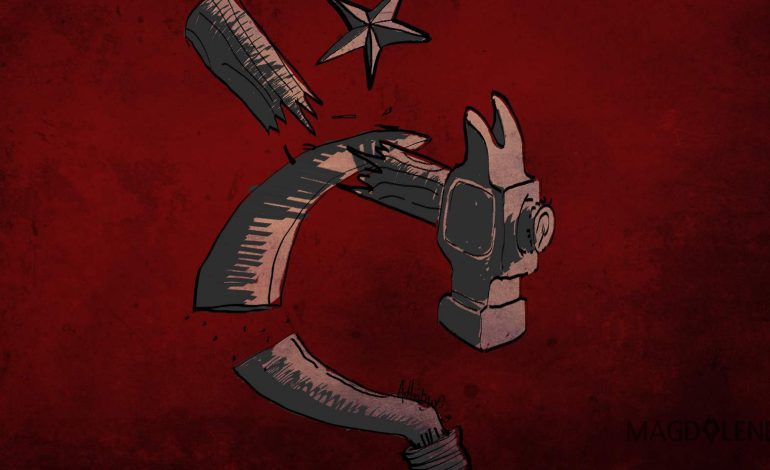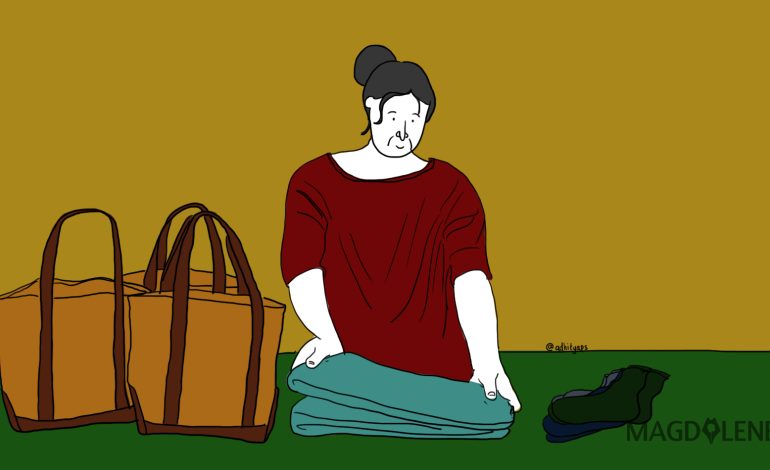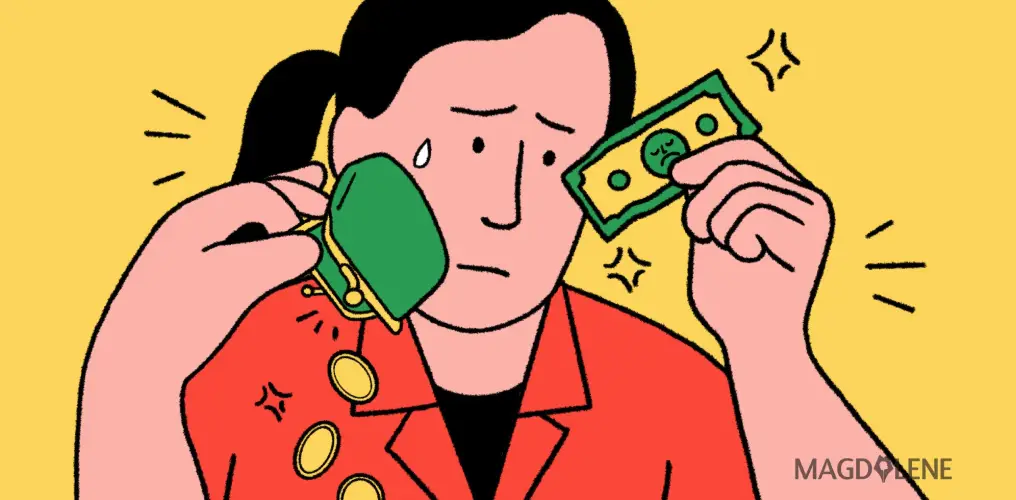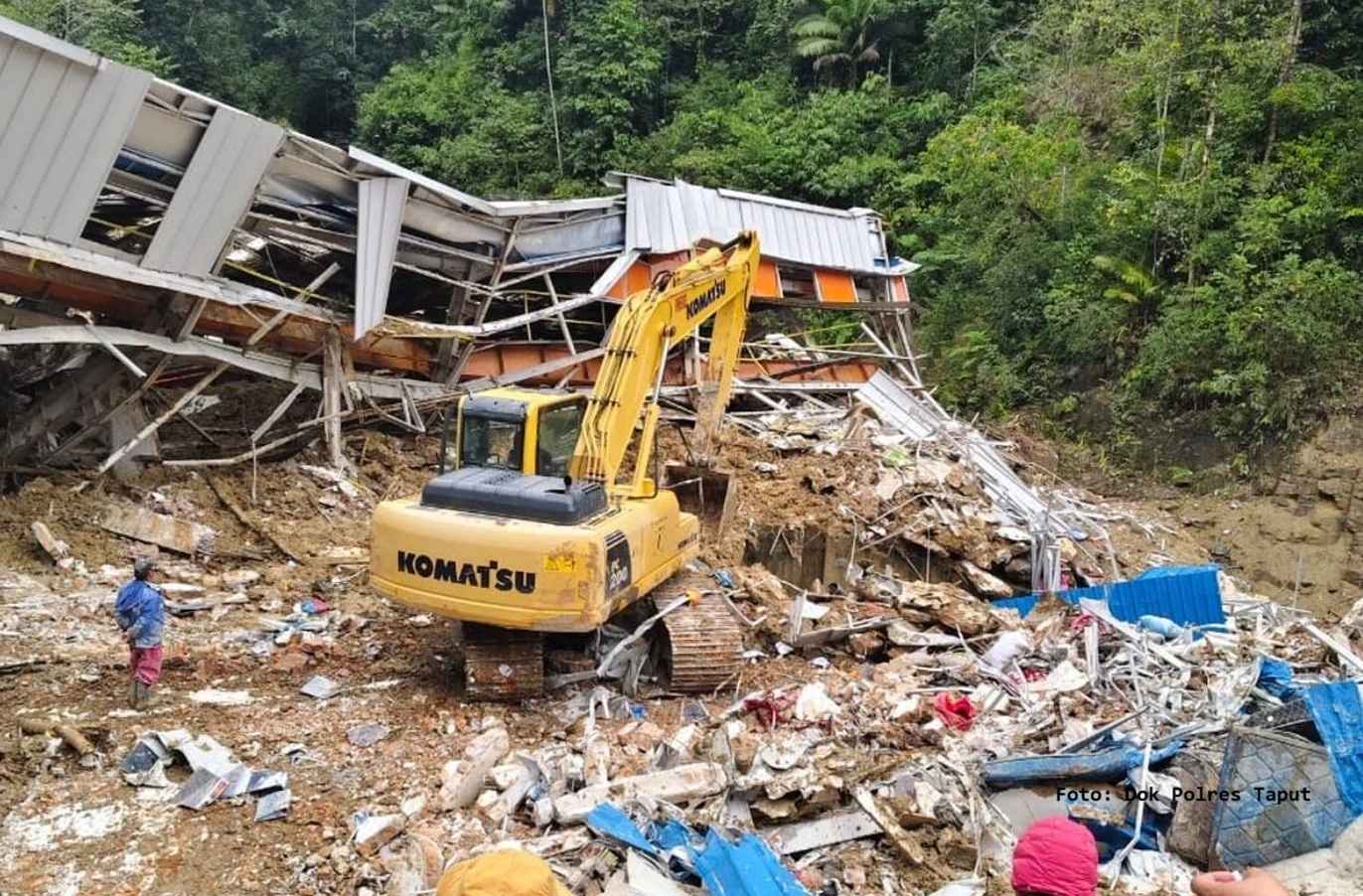Domestic Workers and How Slavery is Still Around Us
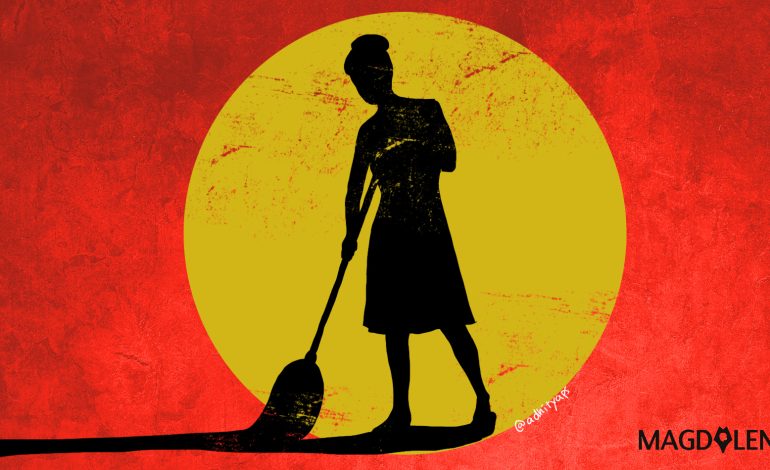
The first thing that came to my mind at the mention of the words “domestic workers” is a woman who used to work in my house. Mbak Arum was no ordinary domestic worker. She is an activist in Jala PRT, an organization that actively engages in discussions, organizes street rallies, and conducts various campaigns and advocacies to fight for the rights of domestic workers.
From time to time, Mbak Arum would ask our permission to come to work late, because she had to attend meetings with other activists. Of course my Mom and I responded gladly and highly supported her noble fight. Mbak Arum is paid a proper minimum wage and goes home every weekend to visit her family.
Mbak Arum uses the same toilet and cutleries that we used, and ate at the same table like us. There was no distance between us because we had mutual respect for each other. Having Mbak Arum around with her stories about domestic workers’ advocacy works, her witty comebacks and her straightforward honesty was always an inspiration for me and my family.
Despite her fight, we still see a lot of injustice against domestic workers in Indonesia. In some ways, their condition amounts to a modern form of slavery.
Last month on July 30 we commemorated the World Day against Trafficking in Persons. The day reminded me of my interview with CNN for their Freedom Project during the Students Opposing Slavery Summit 2017 in D.C. When they asked me what the most apparent problem of modern slavery in Indonesia was, without a doubt I answered domestic workers.
Not all of Indonesian domestic workers enjoy the same condition as Mbak Arum. In fact,, most domestic workers, who are made up of mostly women and underage girls, work long hours without any day off. They are underpaid and abused both verbally and physically. Many of them sleep in tiny rooms in which they can barely move around, and eat leftover food using separate cutleries from their majikan’s or employers. If we try to open our eyes just a little bit wider, these are some highly feudalistic signs that resemble the very condition of slavery in the past.
The condition of domestic workers are much worse for the thousands of migrant workers overseas who are mostly women and who often fall victims to trafficking and are exploited for forced labor and sex. Domestic workers make up more than a third of six million Indonesians working abroad, and they risk being abused and exploited.
In Indonesia, domestic worker is not yet a formally certified occupation. Contracts are mostly made in informal ways without any signed papers, making it harder to advocate for the workers’ rights, in case anything bad happens to them.
In some countries like the Philippines, domestic worker is a formally certified profession. They even have a specific body in the government that gives them trainings in domestic work. But the cost of the trainings and recruitments can be overwhelmingly high, leaving many domestic workers trapped in debt bondages and vulnerable to exploitations for forced labor.
Meanwhile, in Indonesia domestic workers are still a highly stigmatized profession. Soap operas have been perpetuating the classist and sexist perception on domestic workers. Even high-profile figures have no qualms to make light of the plight of domestic workers. Recently a politician tweeted a demeaning remark about Indonesian workers abroad, calling them babu, an outdated and now offensive word to refer to domestic workers.

The government’s decision to stop sending female domestic workers to 21 countries in the Middle East didn’t really help either. The policy backfired and only encouraged traffickers to make profit out of the situation by offering “shortcuts” to the already desperate domestic workers to be sent abroad.
We must keep in mind that being a domestic worker is not an easy job. It’s a risky and very noble one. This is why whenever one of my friends make jokes about domestic workers using offensive words like babu or pembokat, I take them seriously. With the struggles that they go through, domestic workers deserve all the respect and support from us.
Let’s start from our own family, our home: do we treat our domestic workers well and respectfully? Are they provided with reasonable wages and some days off? Are they entitled to their own opinion and space to organize in unions to fight for their rights?
Let this be our food for thought. One that we must cook in our own conscience and digest with our own action.
Margianta Surahman Juhanda Dinata is a sucker for movies and free stuff who works at an NGO with focus on political economy issues. He has also been engaged in some activities in regards to tobacco-control and human rights.

